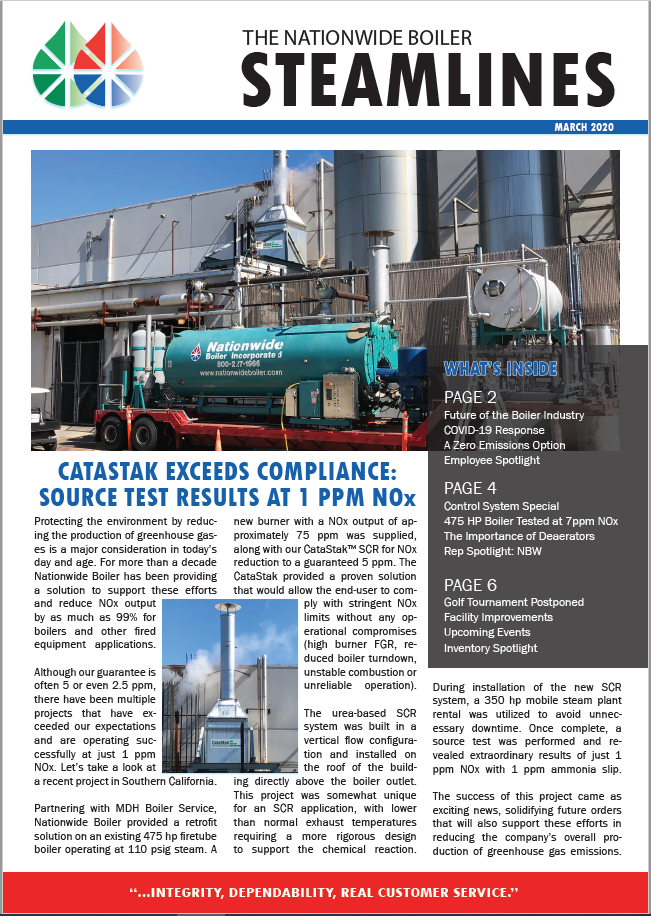When offline, boilers can still be at risk of accumulating corrosion and deterioration that decreases the useful life of a boiler and increases maintenance and repair costs. With proper planning and preparation, a boiler can be taken offline safely with a procedure known as boiler lay up. There are two specific ways to properly shut down your boiler: dry lay up or wet lay up.
Dry lay up is a procedure that involves removing all water and moisture from the boiler. The main advantage of a dry lay up is that you can basically “set it and forget it”. There are no chemical, equipment, or fuel costs. Once completed, the boiler will just need to be checked occasionally to ensure moisture is not getting back into the boiler. A dry lay up is best for extended periods of shutdown. If the system will need to be put back online on short notice or remain in standby, this procedure would not be suitable.
A typical dry lay up procedure involves the following steps:
- Perform a lock-out and tag-out and isolate the boiler from the steam system.
- Perform column and bottom blowdowns and drain the boiler completely.
- Open the fireside and remove any soot from the tubes. Look for rust or scale on the pressure boundary wall, and further evaluate any leakage. Inspect refractory and insulation.
- Open the waterside and look for signs of gasket leakage and corrosion of the gasket seating surface. Inspect the entire waterside and evaluate any scale and corrosion.
- Any scale left on the waterside can trap moisture and oxygen and corrode the boiler further, so remove as much scale as possible. - Dry all surfaces with a fan or electric air heater.
- Have a certified boiler inspector perform a thorough examination of all surfaces, internal and external.
- Determine if any repairs are required - this may be the ideal time to perform repairs without any incurring downtime, since you are already preparing for an extended offline period.
- Coat the fireside with mineral oil, let it dry and close all openings including the stack. A moisture-absorbing material like silica gel or lime.
A wet lay up is performed when the boiler is idle in standby; it is still full of water but isolated from the steam system while the burner remains offline. The procedure involves chemically treating the water to protect the metal surfaces of the boiler and is the ideal lay up method when a boiler might need to be fired on short notice. It does, however, require additional monitoring and treatment costs that aren’t required for a dry lay up.
A typical wet lay up procedure is very similar to a dry lay up, however, the fireside should not be swabbed with mineral oil.
- Follow steps 1-7 above.
- Fill the boiler with the chemically treated hot water (greater than 180F) to its normal operating level. Allow air to continue to vent until the boiler is full or until the steam boiler is at its normal operating level and warm.
- Once complete, boiler water should be circulated periodically to prevent stratification of chemicals. Chemical concentrations should also be monitored routinely.
Before starting a steam boiler in wet lay-up, blow down the boiler to reduce alkalinity, ensure that all tags and locks are removed, and be sure to witness a minimum of three steam cycles before allowing the boiler to run in automatic. This will help ensure proper operation after bringing a system back online from a wet lay up.
If your facility falls under a temporary business closure mandate due to the current state of the COVID-19 pandemic, it is imperative that you follow one of the procedures outlined above to properly shut down your boiler system. View this technical article provided by the National Board for more detailed information on these two types of boiler lay up procedures.



